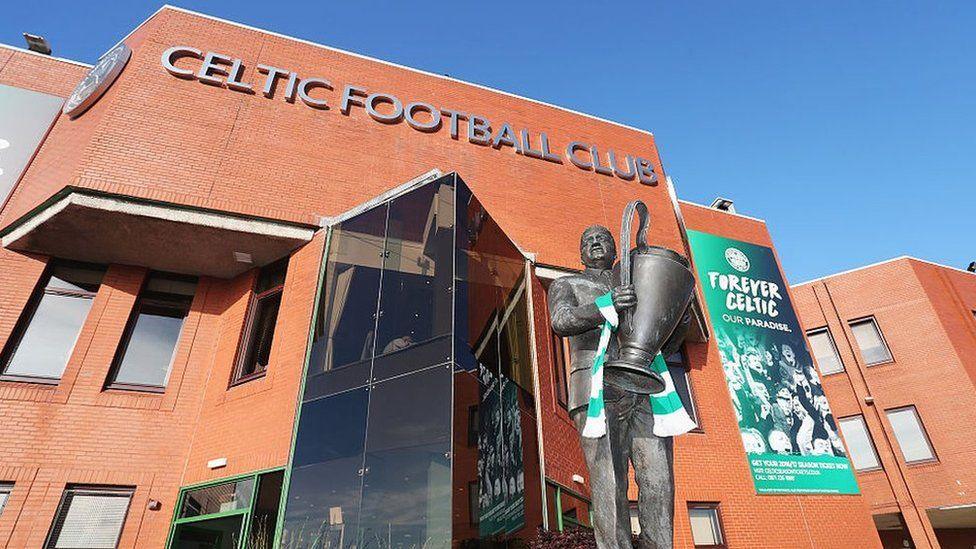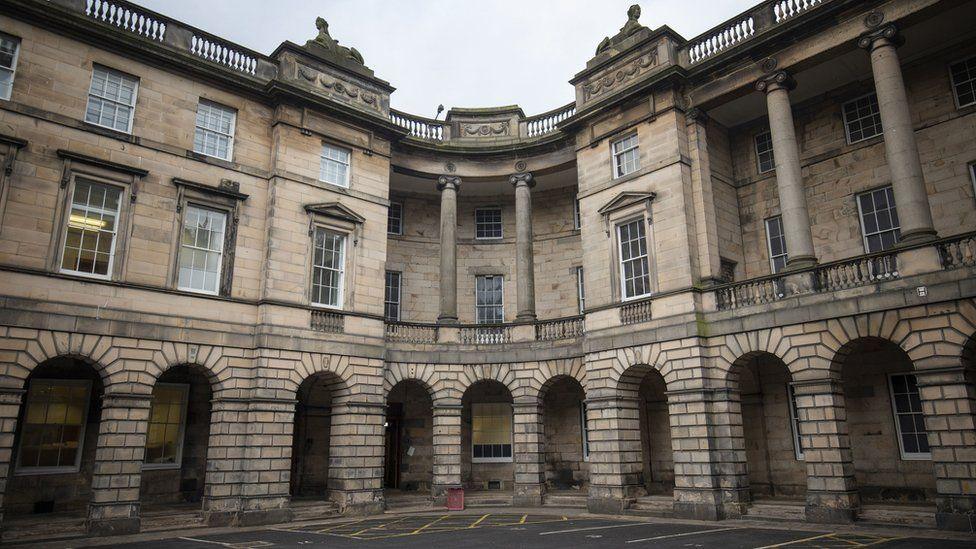Sex abuse claims case against Celtic FC can go ahead
- Published

Lawyers argued that Celtic FC and the boys club were "intimately connected"
A judge has given the go-ahead for a multi-million pound claim against Celtic FC over sex abuse allegations.
Lord Arthurson gave permission for 22 former Celtic Boys Club players to launch a US-style "class action" group claim against the club.
Advocate Ian Mackay QC, representing the men allegedly abused while at the youth team, said Celtic FC and the boys club were "intimately connected".
Celtic FC denied the claim and said the organisations were separate entities.
During a virtual hearing of the Court of Session on Tuesday, Lord Arthurson said the legal criteria for allowing the action to proceed had been met.
The 22 former players came forward seeking compensation after allegedly being sexually assaulted while playing for Celtic Boys Club.
They brought "group proceedings" against Celtic FC PLC - a procedure similar to US class action style litigations.
Group proceedings were brought in to Scots law in 2020. They allow groups of two or more people with the same, or similar, claims to raise a single action in the Court of Session.

At the Court of Session Lord Arthurson said legal criteria for allowing the action to proceed had been met
On Monday, Mr Mackay had told the court that lawyers for the men uncovered evidence which showed apparent close links between Celtic Boys Club and Celtic FC.
He said evidence showed that Celtic FC first became "aware" about rumours of abuse in 1970, with allegations repeatedly raised at club board meetings throughout the 1980s and 1990s.
Mr Mackay said: "Celtic Boys Club was intimately connected to Celtic Football Club - it was branded as being closely connected to Celtic Football Club.
"Players played in Celtic strips and wore blazers which were virtually identical to those worn by Celtic FC players.
"Football kit, holdalls and training gear were provided by Celtic Football Club. The pursuers' understanding was that they were playing for the boys club of Celtic Football Club."
'Fair trial'
He added: "Celtic Football Club exercised control over who played for Celtic Boys Club because scouts recruited players who they considered were good enough to play for Celtic Football Club.
"The Boys Club was a nursery for senior team players. Celtic Boys Club was in effect what could be now known as the academy of Celtic Football Club.
"Celtic is vicariously liable for assaults."
Roddy Dunlop QC, for Celtic FC, had told Lord Arthurson that the action should not be allowed to proceed.
He said his clients believed they would not get a "fair trial" because documents which would be key to their case - that the boys club and Celtic FC were different entities - were missing.
Lord Arthurson said the issues being faced by Celtic were not so great as to force the action to stop.
He also passed a court order prohibiting the identification of the people who had brought the legal action.
Lord Arthurson said: "The common issue in the proceedings is the question of the vicarious liability of the defenders for the actions of these individuals. The court accordingly grants the permission application."
Thompsons Solicitors partner Patrick McGuire, leading the legal team representing the men, said the judge's ruling was a "watershed moment"
He added: "Celtic must now face up to those responsibilities and immediately begin meaningful discussions towards ensuring that every survivor receives full financial justice and compensation."
After the ruling the club issued a statement which read: "Given the ongoing legal proceedings, it is not appropriate for us to provide any comment however we would reiterate that the club is dealing with these sensitive matters in a responsible manner and in conjunction with its advisers."